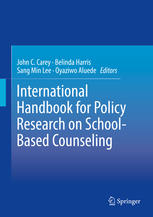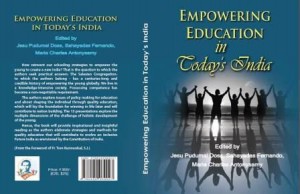{{unknown}} Authors
Authors
Dr. Chika Eze, SHCJ. Lecturer, Institute of Youth Studies, Tangaza University College. The Catholic University of Eastern Africa, P. O. Box 15055, 00509 Nairobi-Kenya. Email: chikashcj@gmail.com
Rev. Dr. Sahaya G. Selvam, sdb. Associate Professor, Graduate Programmes’ Coordinator, Institute of Youth Studies –Tangaza University College. The Catholic University of Eastern Africa, P .O. Box 15055, 00509 Nairobi. Email: selvamsdb@gmail.com
Josephine Adibo, RSCJ. University Counsellor. The Catholic University of Eastern Africa, P. O. Box 62157-00200 Nairobi- Kenya. Email: josadibo@gmail.com
Mandu Selepe. University Counsellor. University of Limpopo, Turfloop Campus. Private Bag X1106, Sovenga 0727, South Africa. Email: dmselepe@yahoo.com
Sewela Monicca Ramaboea. Clinical Psychologist, P. O. Box 3239, Polokwane, 0700. South Africa. Email: moniccar@webmail.co.za
Abstract
Globally, learners in schools are exposed to psychological stressors that often warrant provision of counselling services as preemptive and curative measures to maintain their mental health. Consequently, schools at all levels are required to provide counselling […]
Publications
Publications
Educating Young People in Admonishing Sinners as a Spiritual Work of Mercy
 What does “admonition of sinners” – a spiritual work of mercy – mean? What criteria could we use in our judgement of sin, and how do we admonish the sinner using common criteria? This chapter attempts to answer these questions. In discussing these issues, within the scope of this book, the focus in this chapter will be the education of youth to the admonition of sinners as a spiritual work of mercy. There are three initial sections: the first of which attempts at a definition of sin drawing insight from Ignatian spirituality. Based on this definition, the following section explores the meaning of admonition of sinners. This second section relies much on the Biblical meaning of the spiritual act of mercy. In the third section, we go on to discuss the challenge […]
What does “admonition of sinners” – a spiritual work of mercy – mean? What criteria could we use in our judgement of sin, and how do we admonish the sinner using common criteria? This chapter attempts to answer these questions. In discussing these issues, within the scope of this book, the focus in this chapter will be the education of youth to the admonition of sinners as a spiritual work of mercy. There are three initial sections: the first of which attempts at a definition of sin drawing insight from Ignatian spirituality. Based on this definition, the following section explores the meaning of admonition of sinners. This second section relies much on the Biblical meaning of the spiritual act of mercy. In the third section, we go on to discuss the challenge […]
The methodology of Indian education: An autoethnographic assessment
 How to cite this work:
How to cite this work:
Selvam, S.G. (2015). The methodology of Indian education: An autoethnographic assessment. In J. P. Doss, S. Fernando, & M. C. Antonysamy (eds.), Empowering education in today’s India (pp. 203-222). New Delhi: Don Bosco Youth Animation – South Asia.
Abstract
There are basically three possible approaches in scientific enquiry.[1] The third-person approach in science is informed by a positivist epistemology where truth is said to be what can be objectively observed. Physical sciences and life sciences adopt this methodology and derive their conclusions by means of measurements and statistics. Numbers offer an advantage of objectivity. The second-person approach believes that objective observation is not really possible, since the observer always causes their shadow on the observed. Hence truth is actually a construction of the interaction between the observer and […]
Pastoral care of the family in the light of sound psychology
 Abstract
Abstract
Moral philosophers and theologians argue that the human family is governed by natural law. While philosophers might rationally argue for this, theologians resort to revelation. In theologians’ understanding human family is part of the plan of God. Can scientific psychology provide some empirical evidence for “the natural law” argument? If yes, how could psychology enhance the pastoral care of families today? The aim of the present conceptual paper is to offer some contemporary evidence from evolutionary psychology and neurobiology to suggest that, after all, the human brain may be hire-wired for the family. It will go on to reflect on the role of the family in the growth of a Christian in the light some emerging insights from psychology. The later part of the paper will focus on the association between individuals’ […]
Character Strengths in the Context of Christian Contemplative Practice Facilitating Recovery from Alcohol Misuse: Two Case Studies
 There is an increasing interest in studying the association between spirituality and addiction, and the effect of mindfulness on recovery. There have been some attempts at exploring the mediators of the association, but seldom in the context of Christian contemplation and rarely within a single theoretical framework of psychology. This article reports two case studies from an intervention study carried out in Nairobi, Kenya, that suggest that the Christian contemplative practice has the potential to reduce alcohol misuse while facilitating the emergence of a three-dimensional religious-spirituality model involving the character strengths of self-awareness, self-regulation, humility, and leading to forgiveness, social responsibility, and social intelligence.
There is an increasing interest in studying the association between spirituality and addiction, and the effect of mindfulness on recovery. There have been some attempts at exploring the mediators of the association, but seldom in the context of Christian contemplation and rarely within a single theoretical framework of psychology. This article reports two case studies from an intervention study carried out in Nairobi, Kenya, that suggest that the Christian contemplative practice has the potential to reduce alcohol misuse while facilitating the emergence of a three-dimensional religious-spirituality model involving the character strengths of self-awareness, self-regulation, humility, and leading to forgiveness, social responsibility, and social intelligence.
Selvam, S.G. (2015). Character strengths in the context of Christian contemplative practice facilitating recovery from alcohol misuse: Two case studies. The Journal of Spirituality in Mental Health, 17(3),190-211. DOI: 10.1080/19349637.2015.1053302.
To download the article CLICK HERE.